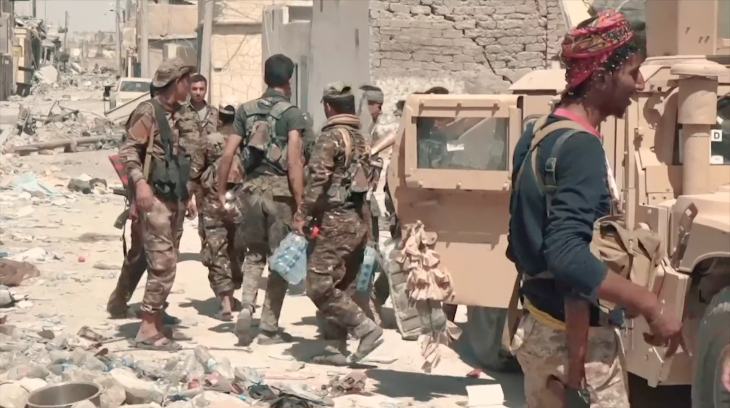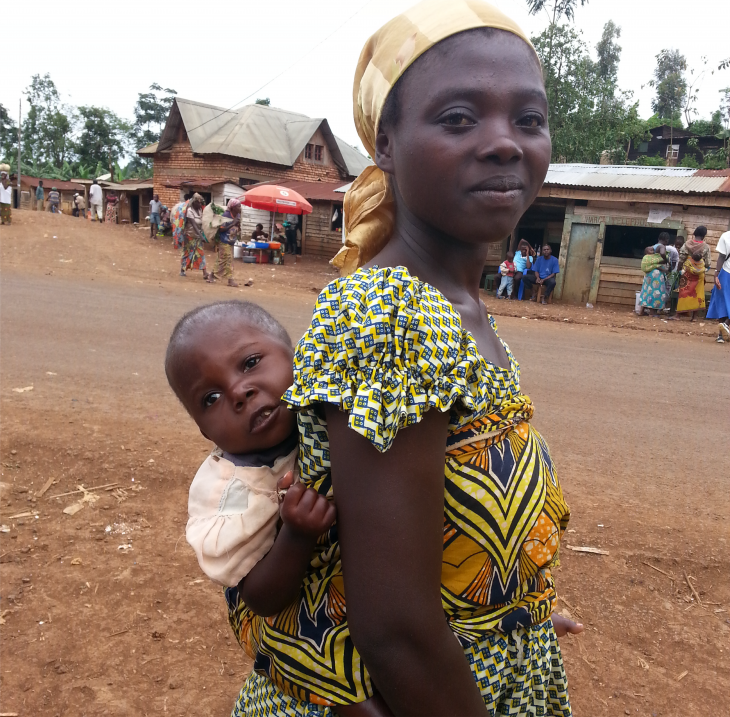There will be no This Week in South Sudan for week 29 and instead a combined newsletter for week 29 and 30. Tuesday 10 July Sudan People’s Liberation Movement-In-Opposition, rejected Entebbe’s power sharing proposal. Wednesday 11 July SPLM-IO blamed the government forces for clashes in River Yei and for abducting civilians in the southern… Read more »
This Week in South Sudan – Week 27
Tuesday 3 July The Government of South Sudan (GoSS) proposed a bill to extent President Kiir’s term for three years. The oppositions rejected the proposal. Wednesday 4 July The GoSS and the Government of Sudan finally agreed to open four crossing corridors: Kosti-Renk road and river, Meriam-Aweil road and rail (not in operation), Heglig-Bentiu and… Read more »
A new technology of security, an old logic of suspicion: surveillance of crowds
Crowd surveillance is on the rise. Contemporary emergency and counter-terrorism planning has underlined the vulnerability of crowded places and called for a greater need to understand and manage crowd behaviour in a time of crisis. Accordingly, in the past few years the research and deployment of crowd surveillance technologies have been initiated across the world… Read more »
This Week in South Sudan – Week 26
The Khartoum Peace Agreement On Wednesday 27 June, Salva Kiir and Riek Machar signed a peace deal alongside representatives from the South Sudan Opposition Alliance, the Former Detainees, other political parties, Sudan’s President Omer al-Bashir, and witnesses from IGAD and the Troika (Norway, the United Kingdom and the United States). President Salva Kiir and Riek… Read more »
Peace, Order, and Good Government
Critical infrastructure is widely recognized as an immediate and pressing security concern for liberal democracies. Large, dispersed, and highly complex systems like energy grids and transport systems that support today’s way of life were not designed with security in mind and are highly vulnerable to all sorts of disruptions that can have widespread social and economic… Read more »
This Week in South Sudan – Week 25
Tuesday 19 June The EU donates 68 million euro in humanitarian assistance for vulnerable communities in Sudan and South Sudan. Wednesday 20 June A delegation from the Government of South Sudan (GoSS) will arrive in Khartoum at the end of June to discuss and initiate the oil production and cooperation between the two Sudans. The… Read more »
Fewer Lives Being Lost in Conflicts
In 2017, approximately 90,000 people died as the direct result of armed conflict. This figure is down for the third year in a row, and is now 31 percent lower than in 2014.
Nearly a third of all conflicts – and four of the 10 most serious wars worldwide – now involve a local division of Islamic State (IS).

The largest and most important of the non-state conflicts in 2017 was the conflict between IS and the Kurdish-dominated Syrian Defence Force (SDF). SDF fighters in central Raqqa in 2017. Photo: Mahmoud Bali. Wikimedia Commons / Public Domain.
Better but not good
The very latest data from the Uppsala Conflict Data Program (UCDP) show that in 2017, there were 10 ongoing conflicts in the world that had each taken at least 1,000 human lives. These 10 wars were taking place in eight countries: Afghanistan, DR Congo, the Philippines, Iraq, Yemen, Nigeria, Somalia and Syria. In addition, there were 39 ongoing smaller armed conflicts, each of which had killed 25–1,000 people.Read More
New Education Policy in Burundi Could Halve Teenage Pregnancy
As of 2014, the Burundi government has pledged that children can continue their basic schooling until grade 9. The fertility impact of this new schooling policy is potentially strong. However, there are three important elements in this story that are less well understood: what will be the magnitude of this new policy’s effect; what is the causality in the relationship between fertility and education; and what are the mechanisms driving it?

Mother and Child. Photo: Gudrun Østby, PRIO
School-age children in Burundi are enrolled in the “Ecole Fondamentale” or “Basic School”. Since the introduction of new legislation in 2014, children in Burundi now attend school for a minimum of 9 years – rather than only 6 years, as was the case before 2014. Prior to 2014, selection into secondary school was made on a competitive basis, whereby all primary school graduates who wanted to continue their education after grade 6 had to take part in a nationwide test. Each year, there were many more candidates than available seats. As of 2014, the government has pledged that children can continue their basic schooling until grade 9.
Conspiracy and Foreign Policy
The spectre of conspiracy looms large in politics and international affairs. We hear of covert Russian interferences in the 2016 US Presidential Elections or of renewed intrigue surrounding the assassination of John F. Kennedy over half a century ago. Intelligence dossiers, anonymous sources, secret meetings and suspicious connections make up the political world we live… Read more »
The Crystal Peace: Civilian Militarism and Wake Civil Society in Colombia
In my special issue article “Building Civilian Militarism: Colombia, Internal War, and Militarization in a mid-term Perspective,” I talk about how civilian militarism became a large part of Colombian society over their years of internal conflict and how, within this context, Columbian civil society will be a key player in the success of the current… Read more »